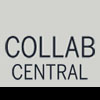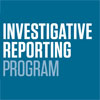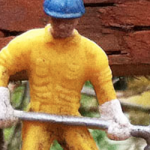Blog:
The JA and Collab/Space 2012 test a new way of extending the conversation

When you invest time in a professional conference, the experience of connecting with others can be deeply energizing, leaving you inspired by ideas you hope to explore and people you intend to follow up with. But back in the daily grind we face familiar demands, accountabilities and our regular routine. The great energy and good intentions often dissipate into the ether. How to keep the momentum from fading? Anti-ether – aka the continued conversation that the JA, MediaShift’s Collaboration Central and the Investigative Reporting Program at UC Berkeley’s Graduate School of Journalism are testing. We’ll expand the conversation that starts this week in a room in California to a JA online forum for deeper exploration over the next couple of weeks.
About Collaboration Central
 Started by PBS’s Mediashift, Collaboration Central has an “ambitious mission: to figure out how journalists can work together better in the digital age.” Tips, examples, explorations and resources, guided by Mark Glaser, Carrie Lozano, and Amanda Hirsch.
Started by PBS’s Mediashift, Collaboration Central has an “ambitious mission: to figure out how journalists can work together better in the digital age.” Tips, examples, explorations and resources, guided by Mark Glaser, Carrie Lozano, and Amanda Hirsch.
All day April 11, eighty-some people from across the news ecosystem gather at UC Berkeley’s David Brower Center for Collab/Space 2012. Through both hands-on experiences and exposure to leaders pushing the edge of journalism and tech, the conference goals include sharing emerging practices around collaborative reporting, discussing concrete strategies that have led to stronger partnerships, and identifying new approaches to working together in perhaps unexpected ways.
I’m lucky to be one of the people attending, and I’m there to learn, listen and, at the end of the event, help expand the experience. Up until now, Journalism Accelerator forums have been online only. The discussions have been set for a certain day and hour, generating a dynamic stream of ideas that has moved fast and presented multiple tracks and perspectives, but has been difficult for many people to absorb and respond thoughtfully, particularly during the pre-set time window.
This time, we’ll be building on the relationships and extending the conversation started at Collab/Space 2012 with an online forum that launches the following week. After the event is over, we’ll create this online space for people to come together and continue discussing a central theme that emerges from the conference or a critical question that deserves more time and thought.
We’ll figure out the topic together with Collab/Space participants. A forum that moves at a slower pace and continues over a couple of weeks should fit in well with regular routines and increase the potential of higher overall returns.
About the Investigative Reporting Program at UC Berkeley’s Graduate School of Journalism
 Longtime investigative reporter and producer Lowell Bergman began sharing his knowledge in Berkeley seminars twenty years ago. In 2006 the Investigative Reporting Program was permanently established as part of UC Berkeley’s graduate school. Students produce in-depth stories on complex subjects. Their work has appeared in national broadcasts and publications and won numerous prizes.
Longtime investigative reporter and producer Lowell Bergman began sharing his knowledge in Berkeley seminars twenty years ago. In 2006 the Investigative Reporting Program was permanently established as part of UC Berkeley’s graduate school. Students produce in-depth stories on complex subjects. Their work has appeared in national broadcasts and publications and won numerous prizes.
It will keep the best aspects of past JA forums. For example, each participant creates a profile that allows people to know who they’re talking to, find connections and deepen relationships. Participants are alerted of new comments by email with an easy click through to the thread. The conversation is curated, with the JA team reaching out to tap additional contributors across lines of expertise who may enrich the conversation with additional perspective. And the entire discussion will be archived and distilled into a shared base of tangible knowledge, a readily accessible resource available for people to use and grow.
Carrie Lozano of Berkeley’s Investigative Reporting Project hit the nail on the head when she told me collaboration is built on trust, and trust starts with relationships. I’d add that successful collaborations benefit from understanding where others have a shared stake in the process. The aim of this post-event continued conversation is to accelerate the energy that begins in a room on one day, taking it further than the constraints of a conference allow.
The Collab/Space 2012 continued conversation is live!
Update: July 7, 2012: The full collection of this JA collaboration series includes: Use case, the nuanced story behind the story of one successful collaboration. Resources, examples and practices to increase your yield from collaborative journalism. Costs v. benefits: What to consider as you team up. From the frontlines: Takeaways from a live chat with two seasoned collaborators. Plus the forum itself, and as captured with Storify.










Weigh In: Remember to refresh often to see latest comments!
2 comments so far.
update! Collab/Space 2012 provided a wealth of insights on collaborating around content, community engagement, dev and more. For the continued conversation here, we’re taking on the financial side of collaboration. Can collaboration increase revenue for news sites? The discussion starts Monday, April 16 and continues through the month.
The biggest lesson I have learned in earning now some $160,000 in local digital display advertising off my beat soccer site http://norwichcity.myfootballwriter.com since 2006 is that we, as journalists, need to RE-collaborate again with our ad sales colleagues – those whose daily work flows and skill sets were a complete mystery to us on the editorial floor. Person-to-person sales remains as key to our future well-being – particularly in that prized local space – as it ever has done which is why we’ve now put a collaborative sales tool at the heart of our new platform, https://beta.addiply.com. Let Batman the Reporter pal up again with Robin the ad rep in a simple and transparent manner that befits the age…